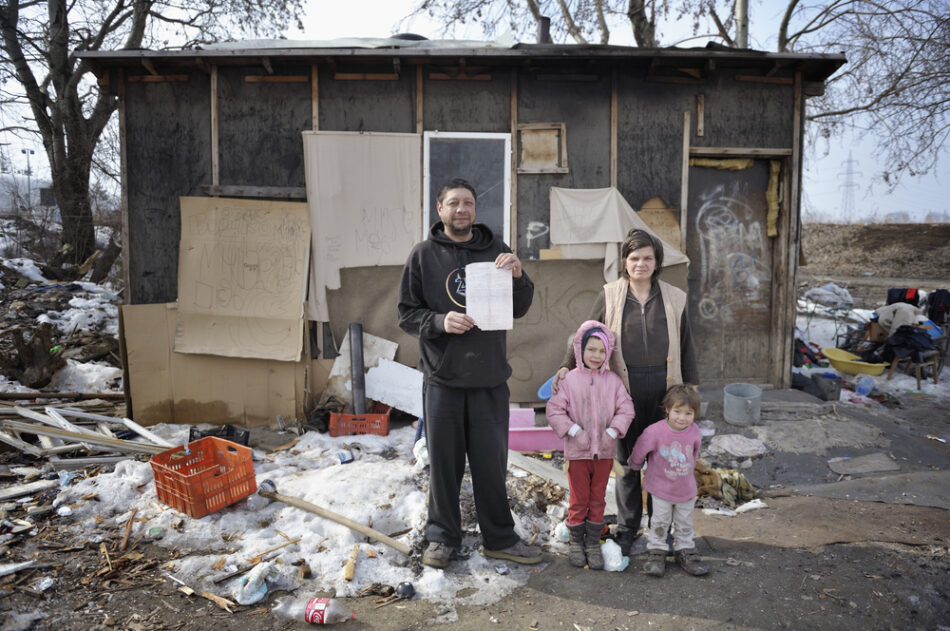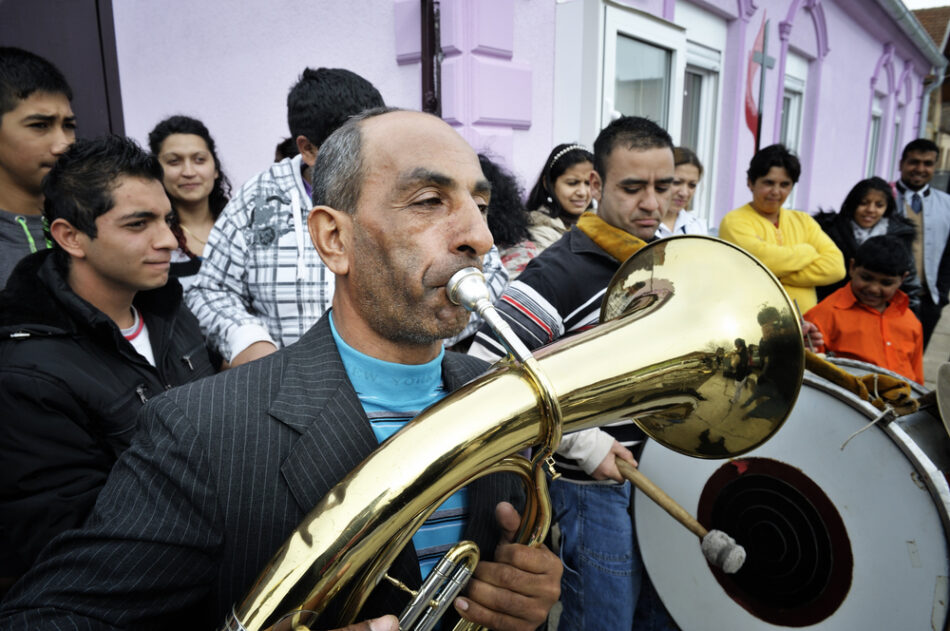Global Lens Reflections on life, the universe, and everything
The Roma: Overcoming a legacy of suffering
By Paul Jeffrey
Published in response magazine May 2013.
Last October, German leaders dedicated a memorial in Berlin to the hundreds of thousands of Roma who were killed by Germany and its allies between 1933 and 1945. The act came almost seven decades after the end of World War II and years after the dedication of memorials to Jews and homosexuals murdered by the Nazis. Nonetheless, the monument finally acknowledges the suffering of the Roma and underlines the urgent challenges faced by today’s Roma as they struggle with the exclusion, separation and assimilation to which they are subjected throughout Europe.
As many as half a million Roma were shot, gassed or starved to death under Nazi regimes, yet after the war Germany remained in denial about what happened. West German officials ruled that measures taken against the Roma before 1943 were legitimate measures against persons committing criminal acts, not the result of policies driven by racial prejudice. Only in 1979 did the West German Federal Parliament identify the Nazi persecution of Roma as being racially motivated.

Violence against the Roma is escalating across Europe today. In that context, the memorial’s dedication was better late than never. “Opening the memorial sends an important message to society that anti-Roma sentiment is as unacceptable as anti-Semitism,” said Romani Rose, a leading Roma rights activist in Germany.
Who are the Roma?
A December article in the British journal Nature presented the results of an extensive genetic sequencing study that indicates the Roma originated among the low caste Dalits–so-called “untouchables”–in India. This reinforces earlier studies linking elements of Romani–the Roma language–to Sanskrit words and phrases. The researchers believe the descendants of today’s Roma began their westward exodus between 1001 and 1026, motivated by a promise that they’d get a promotion in caste if they fought in wars in what is today the Punjab region.
In the centuries after, most Roma continued westward, often remaining a nomadic people until forced to stop by European governments in the last century. As they wandered they took on disparate identities and names–including Travelers, Gypsies, Ashkali, Sinti, and more–shifting their cultural identities in order to survive, a process that continues today, as witnessed in this issue’s article on Bulgaria.
There are some 12 million Roma in Europe today, making them the region’s largest ethnic minority. Yet despite the Berlin monument’s suggestion that remembering Roma suffering will preclude it today, they remain a people in motion. Increasing marginalization and violence during the past decade are pushing the Roma to migrate to other lands, where they’ve been met with restrictive labor laws and forced eviction and expulsion.
From France to Finland, Roma exercising their right to travel in an expanded European Union have been kicked out of their homes and deported, or been forcibly relocated to garbage dumps or the inaccessible margins of large cities. Roma families across Europe are more likely to have their children segregated in special schools and have their daughters trafficked to serve as sex workers in other countries. In several countries, Roma have been systematically denied health care, and Roma women have suffered from coercive sterilization at the hands of government health workers.

Right-wing political parties in Hungary, Slovakia, the Czech Republic and elsewhere have revived the hate speech of the Nazis to justify violent attacks against Roma families and settlements. In Italy and Russia, police violence against Roma, especially Roma women, has increased. Perpetrators of anti-Roma violence have enjoyed widespread impunity. In the last four years, the Budapest-based European Roma Rights Centre has registered at least 48 violent attacks against Roma in Hungary, at least 40 attacks in the Czech Republic and at least 13 attacks in Slovakia resulting in a combined total of at least 11 fatalities. The attacks involved Molotov cocktails, hand grenades and guns, police violence, arson attacks, mob violence and demonstrations. Yet the ERRC’s monitoring of a selection of 44 of these cases found that no perpetrator has been punished in a vast majority of the cases. Indeed, the police suspended investigations without identifying any suspects in nearly one-third of the cases.
Mission study on the Roma
Thousands of United Methodist Women and others will come together to study the Roma this year and next at dozens of Schools of Christian Mission–now redubbed Mission U. As a resource for participants in the study, and as a window onto the complex reality of the Roma in today’s Europe, we take a look in this issue of response at the daily life and challenges of the Roma in three countries: Serbia, Macedonia and Bulgaria. A future issue of the magazine will carry an article on the Roma in Berlin, where the Roma genocide monument dedicated last year bears these words from the poem “Auschwitz,” by Italian Roma poet Santino Spinelli:
Sunken Face
Extinct Eyes
Cold Lips
Silence
One Torn Heart
Without Breath
No Words
No Tears.
Paul Jeffrey is a United Methodist missionary and senior correspondent for response.